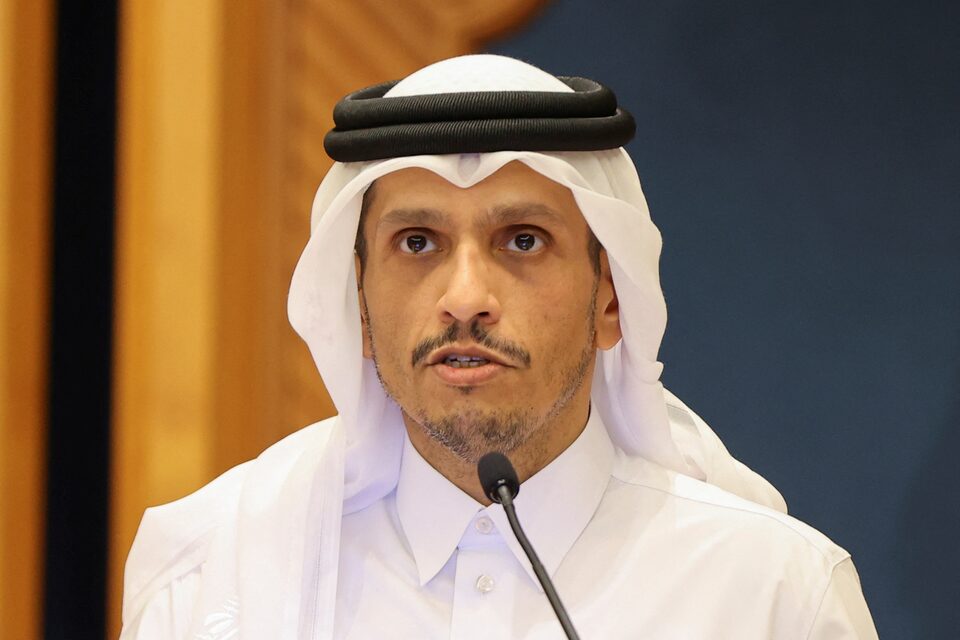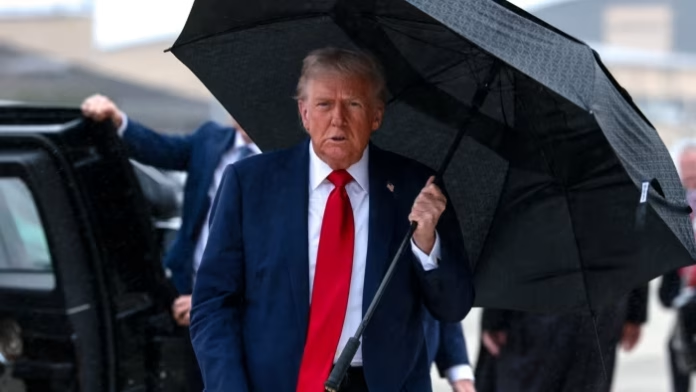TEL AVIV : Thanks to Trump brokered Israel-Palestine peace plan, the region is awaiting anxiously for the proposed hostage-prisoner swap between Israel and Palestine on Monday.
US president Trump is expected to arrive Tel Aviv around 9.20 am local time to meet with hostage families. He will also speak at Israel’s Parliament, the Knesset.
Reports say Trump will continue to Egypt, where President Abdel Fattah el-Sissi’s office said he will co-chair a “peace summit” Monday with regional and international leaders.
Mahmoud Abbas, leader of the internationally recognized Palestinian Authority, will attend, a judge and adviser to Abbas, Mahmoud al-Habbash, told The Associated Press. Netanyahu has rejected any role in postwar Gaza for Abbas, though the U.S. plan leaves the possibility open if his Palestinian Authority undergoes reforms. Hamas seized control of Gaza in 2007.
Meanwhile with signs the peace plan to get on well as expected, families of the hostages were heading to a military base in southern Israel where they are supposed to reunite with loved ones returning from Gaza on Monday morning.
Since early morning on Monday, scores of Israelis began to cram into Hostages Square, a plaza in central Tel Aviv, to show support by waving Israeli flags and signs bearing photos of those expected to be freed, reports said.
Palestine will hndover the living hostages to be released to the International Committee of the Red Cross and then to the Israeli military, which will take them to the Reim military base to be reunited with families.
It is unlikely that the remains of up to 28 other hostages will be returned at the same time. An international task force will work to locate deceased hostages who are not returned within 72 hours, said Gal Hirsch, Israel’s coordinator for the hostages and the missing.
Hamas published on Monday the names of the 20 Israeli hostages to be released under the first phase of a ceasefire agreement with Israel.
Bar Abraham Kupershtein, Evyatar David, Yosef-Chaim Ohana, Segev Kalfon, Avinatan Or, Elkana Bohbot, Maxim Herkin, Nimrod Cohen, Matan Angrest, Matan Zangauker, Eitan Horn, Eitan Abraham Mor, Gali Berman, Ziv Berman, Omri Miran, Alon Ohel, Guy Gilboa-Dalal, Rom Braslavski, Ariel Cunio and David Cunio are the names listed.
Hamas attacked Israel in October 2023, killing about 1,200 people and abducting about 250 others. Israel then invaded Gaza, killing about 67,000 Palestinians, according to Gaza’s health authorities, and reducing much of the territory to ruins.
For many Israelis, getting the hostages back is by far their most important goal. Scores of hostages were released in two earlier temporary cease-fires, and a small number were rescued alive by Israeli soldiers.
For Palestinians, the cease-fire offered hope of an eventual return to something approaching normal life.
Meanwhile, the mediators who helped reach the Gaza cease-fire deal decided to delay talks on more difficult issues, such as Hamas’s arsenal, because the warring parties were not ready for a comprehensive agreement, Qatar’s prime minister told The New York Times.
Qatar’s Prime Minister and Foreign Minister Sheikh Mohammed Bin Abdulrahman al-Thani was one of the central mediators in efforts to end the war in Gaza, and the Qataris have maintained close contacts with Hamas’s leadership for years. He spoke to The New York Times soon after Israel and Hamas agreed to halt hostilities in Gaza and exchange all the remaining hostages in the territory for about 2,000 Palestinian prisoners, the report said.
The deal left some of the thorniest issues in the conflict for a later stage, including the future of Hamas’s weapons and how Gaza would be governed after the end of the war.
“If we went for full-package negotiations, we wouldn’t have reached these results,” Sheikh Mohammed said on Friday in Paris. He spoke after a meeting there with President Emmanuel Macron of France and Arab and European foreign ministers about postwar Gaza.
Sheikh Mohammed said Hamas had expressed a willingness to talk about a different kind of relationship with Israel.
“Hamas are actually open to have a discussion about how they won’t pose a threat for Israel,” the prime minister said.
Hamas officials, the Israeli prime minister’s office and the Israeli foreign ministry did not immediately respond to requests for comment.
Hamas has said in the past that it was willing to agree to a long-term truce with Israel. In March, Khalil al-Hayya, Hamas’s chief negotiator, told American officials in Qatar that the group was open to a five- to 10-year truce, in which the group would lay down its weapons.
More recently, Hamas has maintained publicly that it is opposed to disarmament. It has suggested convening a Palestinian national dialogue about the future of Gaza, including on the fate of its arms.

Hamas has been significantly weakened by the war with Israel, and there are splits within the group on important questions about its future direction.
Some leaders and members want Hamas to refuse to give up its weapons, even if that comes at the price of renewed war and the deaths of more Palestinians. Others say the group needs to be more pragmatic on weapons and other matters.
By giving up the remaining hostages in Gaza, Hamas traded away significant leverage with Israel with no certainty that it would achieve all its goals in return.
Israel Prime Minister Benjamin Netanyahu has consistently said Hamas must be disarmed before the Gaza war can permanently end.
Hamas has long regarded that demand as tantamount to surrender and views armed struggle as a legitimate form of resistance against Israeli control over Palestinian lands.
Netanyahu vowed this month that Hamas would be disarmed and Gaza would be demilitarized, either through diplomacy or by force.
“Either it will be achieved the easy way, or it will be achieved the hard way,” he said. “But it will be achieved.”
Some Arab mediators have said they believe that they can persuade Hamas to partially disarm as long as President Trump guarantees Israel will not restart the war.
Sheikh Mohammed said one question that needed to be addressed was who Hamas would hand over its weapons to. He said there was a marked difference between Hamas giving its weapons to a Palestinian authority and the group giving them to another entity.
It is still not clear when negotiations about the outstanding disputes between Israel and Hamas will begin.
President Trump’s road map for ending the war in Gaza calls for the establishment of a temporary international stabilization force. Sheikh Mohammed said the next step should be to talk about the formation of such a force, which he views as connected to Hamas’s disarmament and further withdrawals of Israeli troops from Gaza.
As the force takes control, the Israeli military should withdraw based on agreed-upon “standards, milestones and time frames linked to demilitarization,” the U.S. plan says. The stabilization force should also train Palestinian police officers and help secure border zones, according to the plan, The New York Times report said.

